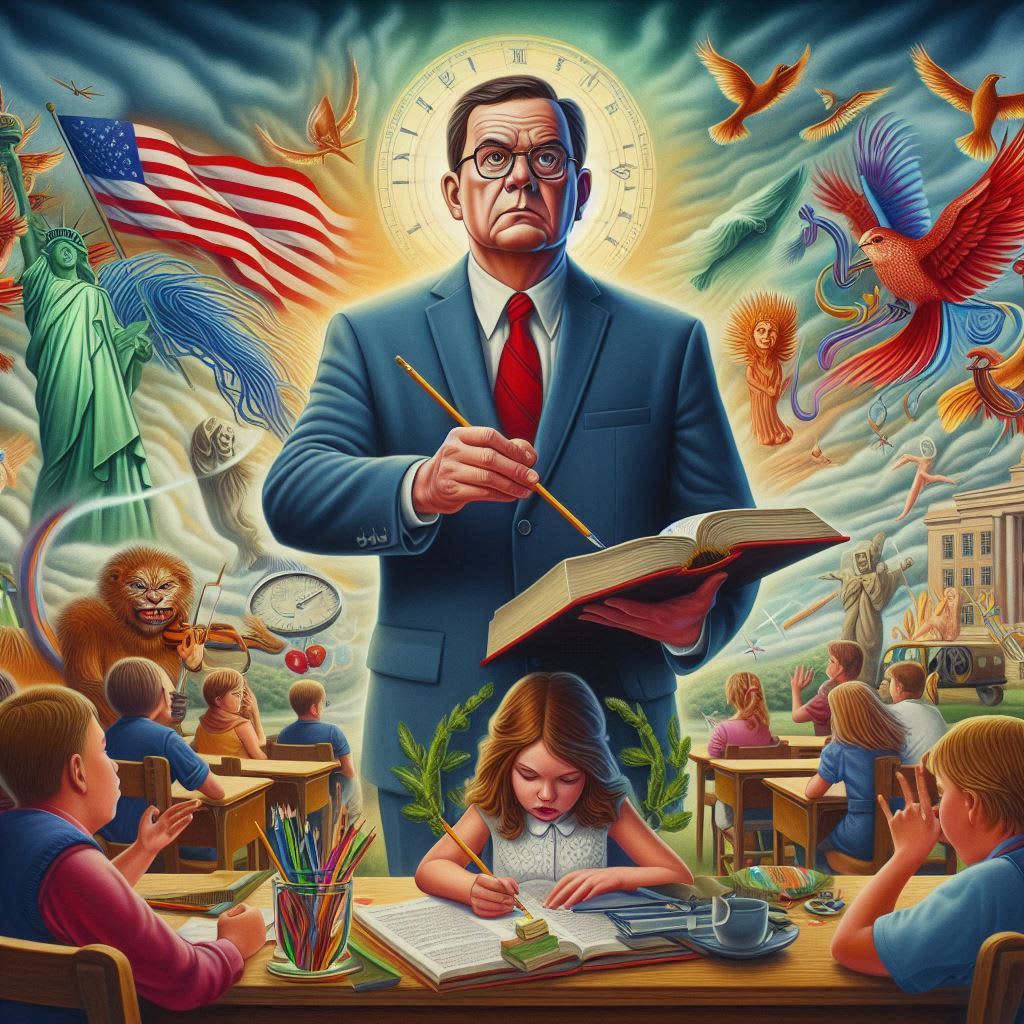Bible or Bust
Oklahoma Schools Head Threatens Teachers with License Revocation Over Religious Instruction

In a move that has sparked widespread controversy and debate, Oklahoma schools superintendent Ryan Walters has announced that teachers who refuse to teach the Bible could face the loss of their teaching licenses. This directive stands in stark contrast to the long-standing principle of the separation of church and state, a foundation of American democracy designed to ensure religious freedom for all.
The news has sent shockwaves through the educational community and beyond, raising questions about the role of religion in public schools and the rights of teachers and students. Many view this mandate as a direct challenge to the constitutional protection against the establishment of religion by the government. The fear is that such a policy could erode the secular nature of public education and impose specific religious beliefs on a diverse student body.
Critics argue that this move by Walters represents a troubling trend among some politicians and educators who are intent on infusing personal religious beliefs into public policy and education. This approach seems to ignore the historical context in which the United States was founded—a nation built by people fleeing religious persecution in Europe, particularly from France. The founding fathers enshrined the separation of church and state in the Constitution to protect citizens from the very kind of religious coercion that Walters appears to endorse.
The idea of enforcing religious instruction in public schools is not only legally dubious but also culturally insensitive. The United States is a pluralistic society with a wide array of religious beliefs and practices. Imposing a particular religious perspective in public schools can alienate and marginalize students and teachers who do not share that faith. Furthermore, it disregards the personal and professional autonomy of teachers, compelling them to teach material that may conflict with their own beliefs or professional judgments about appropriate curriculum.
Imagine the national uproar if a school superintendent were Muslim and threatened teachers with losing their licenses if they did not teach the Koran. The reaction would likely be one of widespread outrage and condemnation, highlighting the double standards at play when it comes to religious imposition in public institutions. This hypothetical scenario underscores the importance of maintaining a secular education system that respects and accommodates the diverse beliefs of all students and educators.
The imposition of religious instruction in public schools also raises practical concerns. Public school teachers are trained to deliver a state-mandated curriculum that covers a broad spectrum of academic subjects. Introducing religious texts like the Bible into the curriculum not only deviates from this mandate but also places an additional burden on teachers, who must navigate the complex terrain of religious content while maintaining an inclusive classroom environment.
There are also significant legal ramifications to consider. The First Amendment to the United States Constitution explicitly prohibits the government from making any law respecting an establishment of religion. This clause has been interpreted by the Supreme Court to mean that public schools, as government entities, must remain neutral on religious matters. Mandating Bible instruction in public schools could open the door to legal challenges on the grounds that it violates this constitutional protection.
Moreover, the push for Bible instruction in public schools ignores the broader educational goals of fostering critical thinking, scientific inquiry, and cultural literacy. Education should equip students with the skills and knowledge to navigate an increasingly complex and interconnected world. Focusing on a single religious text to the exclusion of other important educational content undermines this objective and narrows students' educational experiences.
Ryan Walters' proposal to revoke the licenses of teachers who refuse to teach the Bible is a deeply problematic initiative that threatens the foundational principles of American democracy. It represents a significant overreach of governmental authority into the realm of personal belief and professional autonomy. As the debate over this issue continues, it is crucial to remember the importance of maintaining a secular and inclusive education system that respects the diverse beliefs of all students and teachers. Only by upholding these principles can we ensure that public education remains a space for learning, growth, and mutual respect.
About the Creator
Enjoyed the story? Support the Creator.
Subscribe for free to receive all their stories in your feed. You could also pledge your support or give them a one-off tip, letting them know you appreciate their work.






Comments
There are no comments for this story
Be the first to respond and start the conversation.